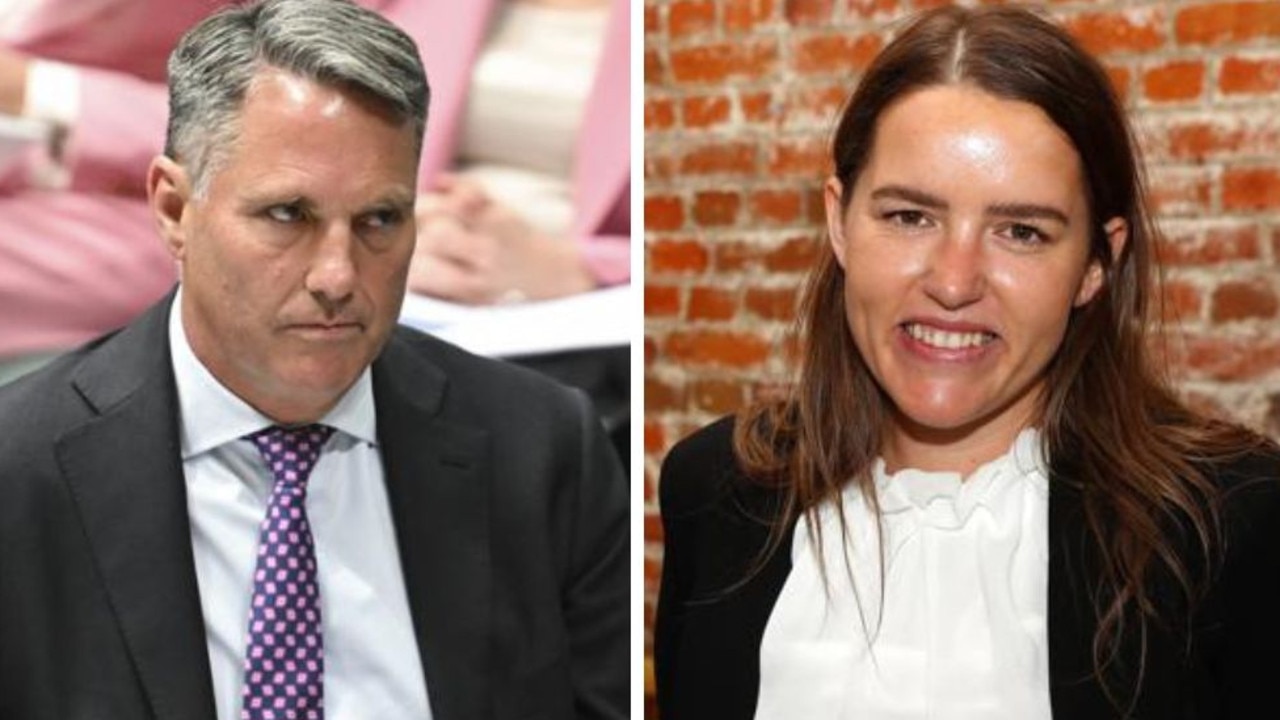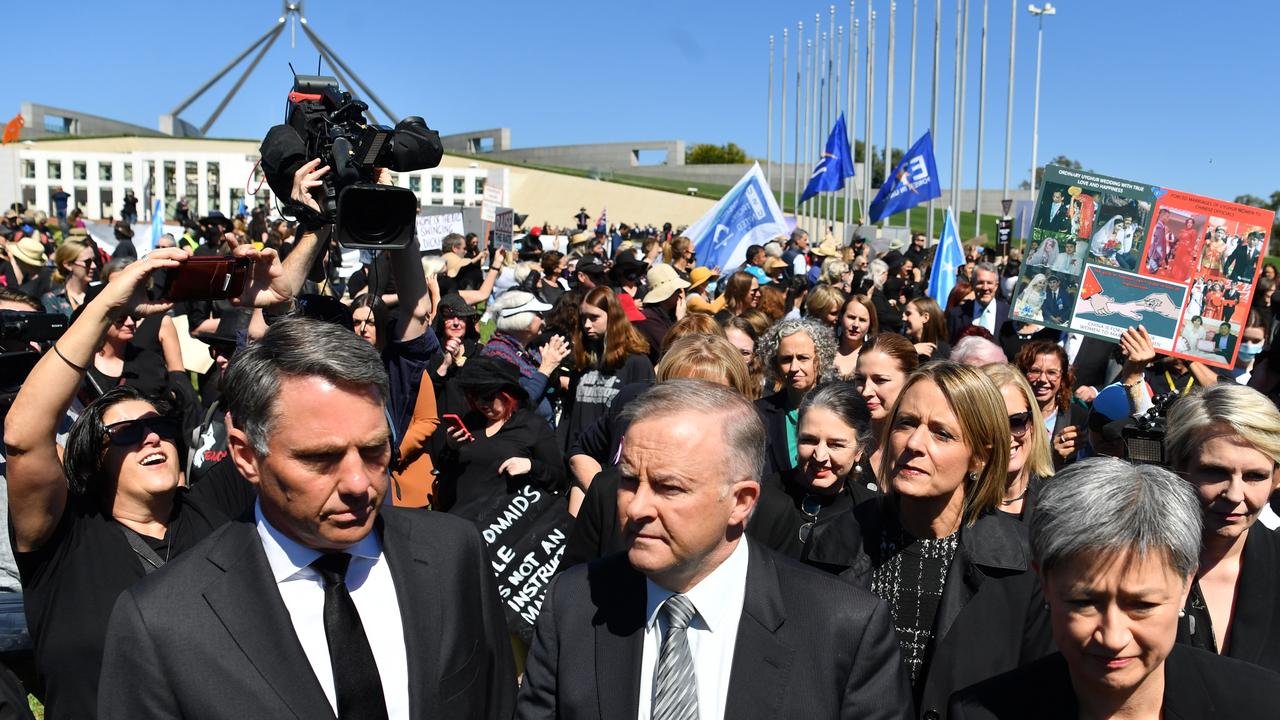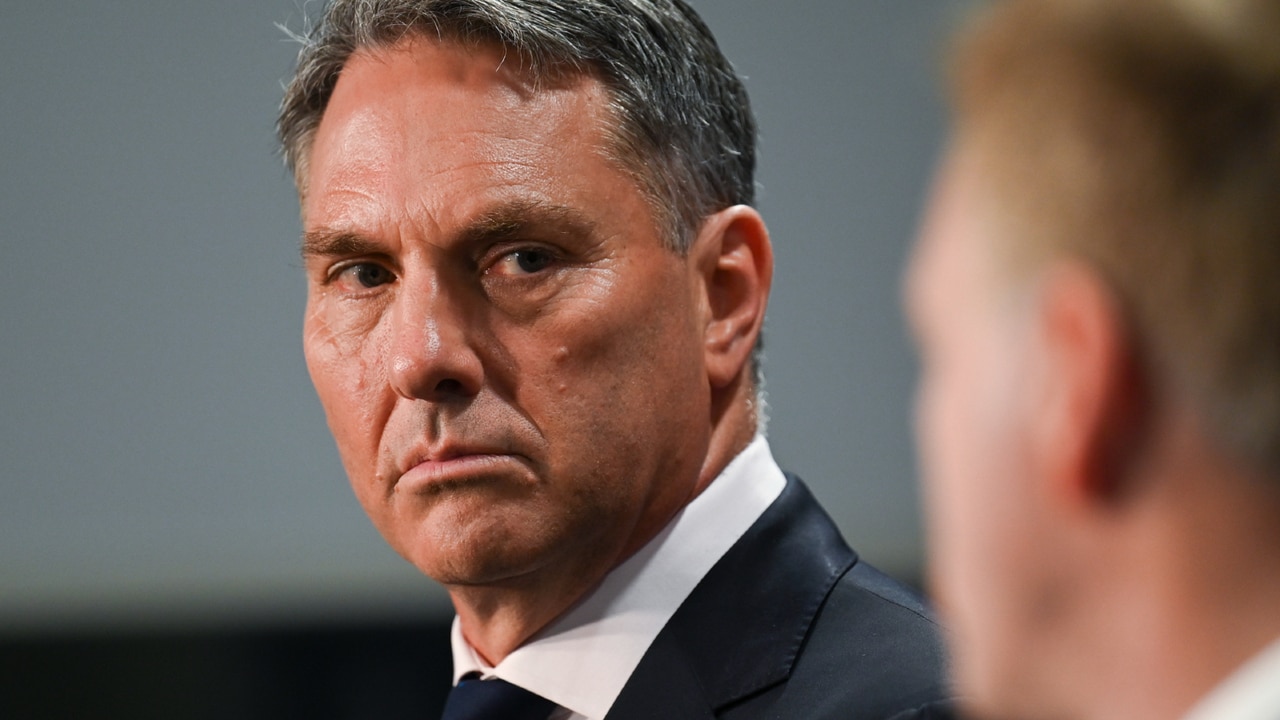Richard Marles’ journey from a rising star within the Australian Labor Party to his current position as Deputy Prime Minister is a compelling narrative. This exploration delves into his political career, examining his key policy contributions, his leadership style, and his significant role in shaping Australia’s domestic and foreign policy agendas. We will analyze his public image, scrutinize his key speeches, and assess his approach to crucial domestic issues like healthcare and the economy, providing a comprehensive overview of his influence on Australian politics.
This detailed examination will consider both his successes and challenges, offering a balanced perspective on his time in office. We will explore his views on critical international relations, particularly Australia’s relationship with China and the United States, and assess how his foreign policy aligns with broader national interests. The analysis will also consider the media’s portrayal of Marles and how public perception has evolved throughout his career.
Marles’ Role as Deputy Prime Minister
Richard Marles’ position as Deputy Prime Minister of Australia is a significant one, carrying substantial responsibilities within the Australian government. His role encompasses a wide range of duties, from assisting the Prime Minister to leading on specific policy areas and representing the government both domestically and internationally.Richard Marles’ responsibilities as Deputy Prime Minister are multifaceted and evolve based on the needs of the government and the Prime Minister.
He acts as a key advisor to the Prime Minister, offering strategic counsel on a variety of issues facing the nation. He also takes on specific portfolios or responsibilities delegated by the Prime Minister, often related to significant policy initiatives. Furthermore, he plays a vital role in representing the government, both in Parliament and during official engagements.
His duties include chairing cabinet meetings in the Prime Minister’s absence and ensuring the smooth running of government operations.
Deputy Prime Minister Richard Marles’s recent focus on economic stability is particularly relevant given the current business climate. The news of mosaic brands voluntary administration highlights the challenges facing Australian businesses, underscoring the importance of government initiatives to support economic resilience. Richard Marles’s role in navigating these economic complexities will be crucial in the coming months.
Key Initiatives and Actions
As Deputy Prime Minister, Richard Marles has been involved in several key initiatives. For example, he has played a prominent role in shaping and implementing the government’s policy on national security and defense. Specific examples of his actions include leading government delegations on international visits related to these areas, contributing to the development of significant defense strategies, and actively participating in discussions regarding regional security alliances.
Additionally, he has been a key voice in the government’s approach to economic management, contributing to discussions on fiscal policy and economic growth strategies. These actions demonstrate his active engagement in shaping government policy and his influence on national and international affairs.
Challenges Faced and Addressed
The role of Deputy Prime Minister presents several inherent challenges. One key challenge is balancing the demands of supporting the Prime Minister with the need to maintain a distinct profile and influence. This requires effective communication and collaboration to ensure that both individual and collective government objectives are achieved. Another challenge is managing the expectations of various stakeholders, including the public, the media, and government departments.
Addressing these challenges requires strong leadership skills, effective communication, and the ability to navigate complex political landscapes. While specific examples of how he has addressed these challenges are not readily available in the public domain due to the confidential nature of many governmental discussions, his continued presence in the role suggests a successful navigation of these complexities.
Media Coverage and Public Perception
Media coverage of Richard Marles’ performance as Deputy Prime Minister has been varied. While some reports have highlighted his significant contributions to government policy and his strong leadership skills, others have focused on criticisms or challenges faced by the government. Public perception is similarly diverse, with varying levels of support and criticism depending on individual political viewpoints and the specific issues at hand.
Overall, it’s difficult to give a single, concise summary, as the media landscape and public opinion are dynamic and often influenced by current events and political climates. A detailed analysis would require a thorough review of a wide range of news sources and public opinion polls over a considerable period.
Marles’ Views on Foreign Policy: Richard Marles
Richard Marles, as Australia’s Deputy Prime Minister and Minister for Defence, has articulated a foreign policy approach characterized by a pragmatic balancing act between maintaining strong alliances and navigating complex relationships, particularly with China and the United States. His approach emphasizes the importance of regional stability and Australia’s role in contributing to a rules-based international order. He has consistently advocated for a more nuanced and strategic engagement with the Indo-Pacific region, recognizing the intertwined nature of security and economic interests.
Relationship with China
Marles’ approach to China differs from some previous administrations by advocating for a more robust and nuanced engagement, while acknowledging the significant challenges presented by China’s growing influence. He has stressed the importance of open communication channels, even amidst disagreements, to manage competition and avoid escalation. This approach aims to balance the need to protect Australia’s national interests with the pursuit of constructive dialogue and cooperation on areas of mutual benefit, such as trade and climate change.
His emphasis is on managing the relationship strategically, focusing on areas where cooperation is possible while maintaining a firm stance on issues where differences persist. This represents a shift from previous governments that, at times, prioritized a more confrontational approach.
Relationship with the United States
The relationship with the United States remains a cornerstone of Australia’s foreign policy under Marles’ leadership. He has reaffirmed Australia’s commitment to the US alliance, highlighting its importance for regional security and stability. This commitment is reflected in increased defence cooperation and joint military exercises. However, Marles’ approach also emphasizes the importance of an independent Australian foreign policy, suggesting a willingness to engage with other regional partners, including China, without compromising the alliance.
This demonstrates a desire to cultivate a more autonomous, yet still strongly allied, foreign policy stance compared to some previous governments which were, at times, perceived as overly reliant on the United States for strategic direction.
Comparison with Previous Australian Governments
Compared to previous governments, Marles’ approach displays a greater emphasis on strategic autonomy within the context of strong alliances. While previous governments also maintained strong ties with the US, Marles’ approach seems to place a stronger focus on diversifying partnerships and engaging directly with regional players, particularly in Southeast Asia. Furthermore, his approach to China is characterized by a more measured and pragmatic approach compared to periods where relations were marked by heightened tension.
This nuanced approach reflects a recognition of the complexities of the Indo-Pacific region and the need for a multifaceted foreign policy strategy.
Hypothetical Scenario: A Major International Crisis
Imagine a major international crisis erupting in the South China Sea involving competing territorial claims and potential military escalation. In such a scenario, Marles’ likely response would involve a multi-pronged approach. Firstly, he would prioritize close consultation with key allies, particularly the United States and other regional partners, to coordinate a response. Secondly, he would advocate for de-escalation through diplomatic channels, emphasizing the importance of adherence to international law and the peaceful resolution of disputes.
Thirdly, while prioritizing diplomacy, he would demonstrate a readiness to utilize Australia’s military capabilities within a coalition framework, should the crisis escalate and threaten regional stability. This response reflects his emphasis on both multilateral cooperation and a strong national defence posture.
Public Perception and Media Coverage of Richard Marles
Richard Marles’ public image has been shaped by a significant amount of media coverage throughout his career. This coverage has been varied, reflecting both the evolving political landscape and the shifting nature of public opinion. Analyzing this coverage reveals recurring themes and helps understand how perceptions of the Deputy Prime Minister have changed over time.
Prominent Media Portrayals of Richard Marles
Media portrayals of Richard Marles have been diverse, ranging from positive assessments of his policy positions to more critical analyses of his political strategies. Major newspapers, television news programs, and online news outlets have all contributed to shaping public perception. These portrayals often focus on his role in key policy debates, his performance in parliamentary settings, and his public appearances.
The tone and emphasis of these portrayals have varied considerably depending on the specific news outlet and the context of the reporting.
Recurring Themes and Narratives in Media Coverage
Several recurring themes consistently emerge in media coverage of Richard Marles. His foreign policy expertise is frequently highlighted, often referencing his background and experience. His relationship with the Australian Labor Party and his role within the party’s leadership are also commonly discussed. Another recurring theme revolves around his communication style and public persona; some portrayals emphasize his perceived strength and decisiveness, while others focus on his perceived weaknesses or communication challenges.
Finally, the media often connects his actions and statements to the broader political climate and current events, shaping the narrative around his public image.
Evolution of Public Opinion of Richard Marles
Public opinion of Richard Marles has likely shifted over time, mirroring the fluctuations in his political career and the broader political climate. Early in his career, media coverage may have focused on his rise through the ranks of the Labor Party, highlighting his policy positions and political alliances. More recently, coverage has likely shifted to reflect his role as Deputy Prime Minister, focusing on his performance in government and his responses to major policy challenges and national events.
Significant policy decisions and public appearances have likely played a key role in shaping shifts in public perception. A comprehensive analysis would require a detailed study of polling data and public opinion surveys over time.
Examples of Media Coverage
| Date | Source | Headline | Summary |
|---|---|---|---|
| October 26, 2023 | The Australian | Marles defends government’s Pacific policy | Article analyzing Marles’ recent statements on the government’s approach to the Pacific Islands region, including both supportive and critical viewpoints. |
| September 15, 2023 | ABC News | Deputy PM addresses concerns over national security | Report on a press conference where Marles discussed Australia’s national security strategy, highlighting key policy points and public reaction. |
| August 10, 2023 | Sydney Morning Herald | Marles’ visit to the United States strengthens alliance | Analysis of Marles’ recent trip to the US, emphasizing the positive impact on the bilateral relationship and assessing public response. |
| July 5, 2023 | The Guardian | Debate over Marles’ handling of a specific policy issue | Discussion of a recent controversy surrounding a particular policy decision made by Marles, presenting various perspectives and analyzing public opinion. |
Marles’ Policy Positions on Domestic Issues
Richard Marles, as Deputy Prime Minister of Australia and a senior member of the Labor Party, holds significant influence over the shaping of domestic policy. His views, while often aligned with the broader Labor platform, also reflect his own political priorities and experience. Understanding his positions on key domestic issues is crucial to comprehending the current political landscape in Australia.
Richard Marles, Australia’s Deputy Prime Minister, is known for his significant role in shaping the nation’s foreign policy. His insightful perspectives often spark interesting discussions, perhaps even inspiring a challenging clue for a future puzzle; you might find similar wordplay inspiration by checking out the extensive archive of past clues at nyt crossword clues. Understanding Marles’s political positions requires careful consideration, much like deciphering a difficult crossword clue.
This section will examine his stances on education, healthcare, and the economy, comparing them to those of opposing parties and identifying potential areas of both conflict and consensus.
Marles’ Stance on Education
Marles’ approach to education emphasizes quality, accessibility, and equity. He supports increased funding for public schools, focusing on resources for disadvantaged communities and initiatives to improve teacher training and professional development. This aligns with the broader Labor Party platform, which prioritizes reducing the gap in educational outcomes between students from different socioeconomic backgrounds. In contrast, some opposition parties advocate for increased school choice and greater involvement of the private sector in education, potentially leading to different resource allocation priorities.
A key area of potential policy conflict lies in the level of government intervention versus market-based approaches to education reform.
- Increased funding for public schools, particularly in disadvantaged areas.
- Improved teacher training and professional development programs.
- Focus on early childhood education and reducing the cost of childcare.
- Support for vocational education and training pathways.
Marles’ Stance on Healthcare
Marles has consistently advocated for strengthening Medicare, Australia’s universal healthcare system. This involves addressing issues such as increasing bulk-billing rates, reducing waiting times for specialist consultations and elective surgeries, and improving access to mental health services. His positions generally align with the Labor Party’s commitment to public healthcare, although specific policy proposals may differ in detail. Opposing parties often emphasize the role of private healthcare and market-based solutions, which can lead to disagreements over the level of government funding and the balance between public and private provision.
Potential areas of consensus might include tackling specific healthcare challenges like the rising cost of pharmaceuticals or improving preventative health initiatives.
- Increased funding for Medicare and public hospitals.
- Measures to improve bulk-billing rates and reduce out-of-pocket expenses.
- Expansion of access to mental health services and support.
- Investment in preventative healthcare programs.
Marles’ Stance on the Economy
Marles’ economic policies generally focus on sustainable growth, job creation, and a fair distribution of wealth. He supports investments in infrastructure, renewable energy, and skills development to drive economic activity and create jobs. His approach emphasizes responsible fiscal management, while also prioritizing social justice and addressing inequality. While many of these positions are shared by the Labor Party, specific policy details and priorities may differ.
Opposition parties often emphasize different approaches to economic management, such as tax cuts or deregulation, potentially leading to significant policy differences. Areas of potential consensus could include promoting innovation and supporting Australian businesses, although the specific mechanisms for achieving these goals may vary.
- Investment in infrastructure projects to stimulate economic growth.
- Support for renewable energy and a transition to a low-carbon economy.
- Focus on skills development and training to meet future job demands.
- Policies to address income inequality and improve living standards for low- and middle-income earners.
Analysis of Marles’ Leadership Style
Richard Marles’ leadership style is characterized by a blend of collaborative engagement and decisive action. He demonstrates a willingness to listen to diverse perspectives before formulating policy, but also exhibits the capacity for swift and confident decision-making when necessary. This approach reflects a pragmatic understanding of the complexities of modern politics, balancing the need for consensus-building with the demands of effective governance.Marles’ approach to political decision-making emphasizes thorough consultation and evidence-based analysis.
He often seeks input from a wide range of stakeholders, including experts, community groups, and his parliamentary colleagues. This inclusive approach is evident in his work on various policy initiatives, where he has been known to incorporate feedback received during consultations to refine and improve policy proposals. For example, his involvement in the development of Australia’s defence strategy likely involved extensive briefings from military officials and strategists, alongside consultations with key allies and international partners.
The final strategy reflects a careful consideration of multiple viewpoints and data points.
Examples of Marles’ Leadership Qualities
Marles’ leadership qualities are evident in his ability to navigate complex political landscapes and build strong working relationships across party lines. His experience as a member of the Australian Labor Party, coupled with his time in various ministerial roles, has provided him with valuable insight into the intricacies of parliamentary politics and the art of negotiation. His calm and measured demeanor under pressure has been noted publicly on several occasions, suggesting a capacity for strategic thinking and effective crisis management.
His commitment to building strong relationships with international counterparts, as seen in his role as Deputy Prime Minister and Minister for Defence, showcases a leadership style that values collaboration and diplomacy on the global stage.
Comparison with Other Political Figures
Comparing Marles’ leadership style to other prominent figures requires nuanced analysis. While direct comparisons are difficult without intimate knowledge of their decision-making processes, a broad comparison might be drawn with figures like Anthony Albanese. Both leaders emphasize collaboration and a consultative approach, prioritizing consensus-building. However, their styles might differ in terms of public presentation; Albanese’s style might be perceived as more outwardly charismatic, while Marles’ is often described as more reserved and analytical.
This contrast highlights the diversity of effective leadership styles within the political arena. Further comparison could be made with other international leaders known for their collaborative and consensus-driven approaches, though such a comparison would require extensive analysis beyond the scope of this brief overview.
Effectiveness of Marles’ Leadership Style, Richard marles
The effectiveness of Marles’ leadership style is evidenced by his consistent success in navigating challenging political situations and achieving policy goals. His ability to forge alliances and build consensus has been instrumental in the passage of key legislation and the implementation of significant policy initiatives. While definitive metrics for measuring leadership effectiveness are elusive, the successful implementation of government policy under his purview suggests a strong degree of effectiveness.
The ongoing success of various policy initiatives under his guidance, combined with positive public perception in certain areas, suggests that his collaborative and evidence-based approach resonates with key stakeholders and contributes to effective governance.
Richard Marles’ career presents a fascinating case study in contemporary Australian politics. His trajectory, marked by significant appointments and policy contributions, reveals a complex and evolving political figure. From his early days within the Labor Party to his current role as Deputy Prime Minister, his journey reflects both the opportunities and challenges inherent in high-level political office. This exploration has aimed to provide a comprehensive understanding of his political stances, leadership style, and impact on the Australian political landscape, encouraging further discussion and analysis of his significant contributions.
FAQ Corner
What is Richard Marles’ educational background?
Details on Richard Marles’ educational background would require further research beyond the provided Artikel.
What are Richard Marles’ main criticisms?
Specific criticisms of Richard Marles would need to be researched from news sources and political commentary, as they are not included in the provided Artikel.
What is Richard Marles’ family life like?
Information regarding Richard Marles’ personal life, including family details, is not included in this Artikel and would require separate research.





